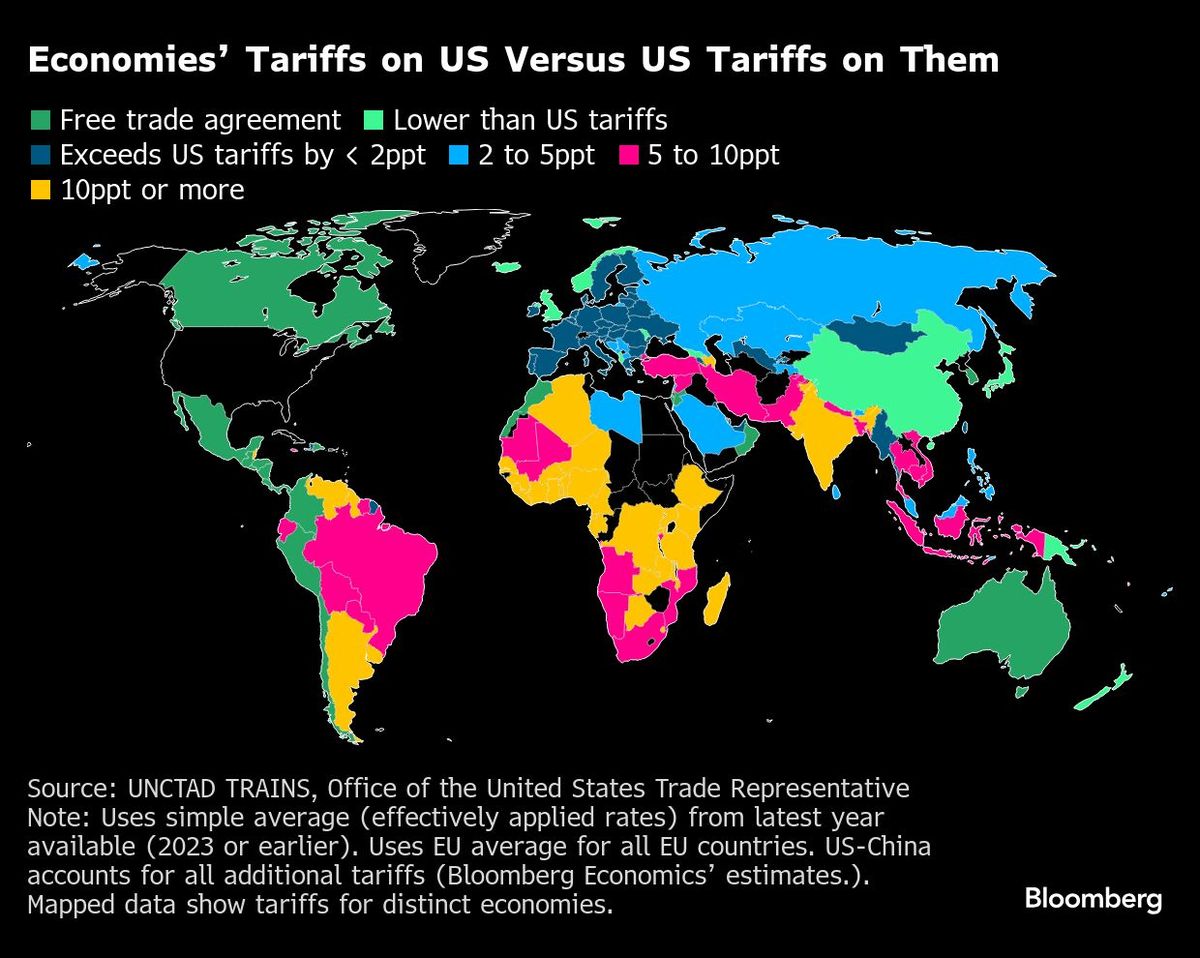
(March 27): The European Union (EU) expects the US to apply a double-digit tariff rate across the bloc when US President Donald Trump announces a sweeping package of so-called reciprocal duties on April 2.
The bloc anticipates that the US will use a single tariff rate for the EU as a whole, rather than setting different levels per member state, according to people familiar with the matter.
The EU’s trade chief, Maros Sefcovic, and European Commission president Ursula von der Leyen’s head of Cabinet met with with US Commerce Secretary Howard Lutnick, US Trade Representative Jamieson Greer, and National Economic Council director Kevin Hassett this week to discuss the trade situation.
The talks with the US made little headway and there’s little the EU can do to keep the levies from being imposed, said the people, who spoke on the condition of anonymity. An EU response to the US tariffs likely won’t be immediate as the bloc will need to assess the details.
Trump has said the reciprocal levies will rectify non-tariff barriers that he says are unfair, such as domestic regulations and how countries collect taxes, including the EU’s value-added tax (VAT). The EU says its VAT is a fair, non-discriminatory tax that applies equally to domestic and imported goods.
“I have always been clear with my US counterparts that we will react firmly and proportionally if we are hit by unjustified measures,” Sefcovic told lawmakers last week.
Speaking to reporters on Wednesday at the Oval Office, Trump said the reciprocal levies would be lower than expected.
“We are going to make it all countries, and we are going to make it very lenient,” Trump said. “I think people are going to be very surprised. It will be, in many cases, less than the tariff that they’ve been charging us for decades.”
The EU has offered to lower its tariffs on industrial goods and to boost its imports of some American products such as soybeans and liquefied natural gas in an effort to avoid a trade dispute.
During the discussions, however, the US side showed no interest in opening negotiations before April 2 as proper talks would only start once the the new tariffs are announced, according to the people.
Non-tariff issues such as VAT, digital taxes other regulations featured prominently during the discussions in Washington, as the Trump administration has focused its attacks on what it considers to be trade barriers to American products, the people said.
Earlier this month, the US imposed a 25% tariff on steel and aluminium imports, which led the EU to announce its own retaliatory duties on up to €26 billion (US$28 billion or RM124.08 billion) of politically sensitive American goods.
Politico reported earlier on the EU expectations for the US tariff levels.
Uploaded by Tham Yek Lee
- China's biggest state banks to raise US$71.6b to boost capital
- Four Chinese nationals detained for illegally entering Bangkok disaster zone to 'retrieve documents'
- Japan to give crypto assets legal status as financial products, Nikkei says
- Volvo Car brings back Samuelsson as CEO to steer turnaround
- Trump won’t rule out seeking third term as US president, says there are ways
- Japan's production rises most in 11 months ahead of new US tariffs
- South Korea's short-selling resumption set to entice global funds
- King, Queen perform Aidilfitri prayers at Federal Territory Mosque
- Asia braces for historic test of export model from Trump tariffs
- Temasek-backed 65 Equity makes European foray with Swiss pharma merger

